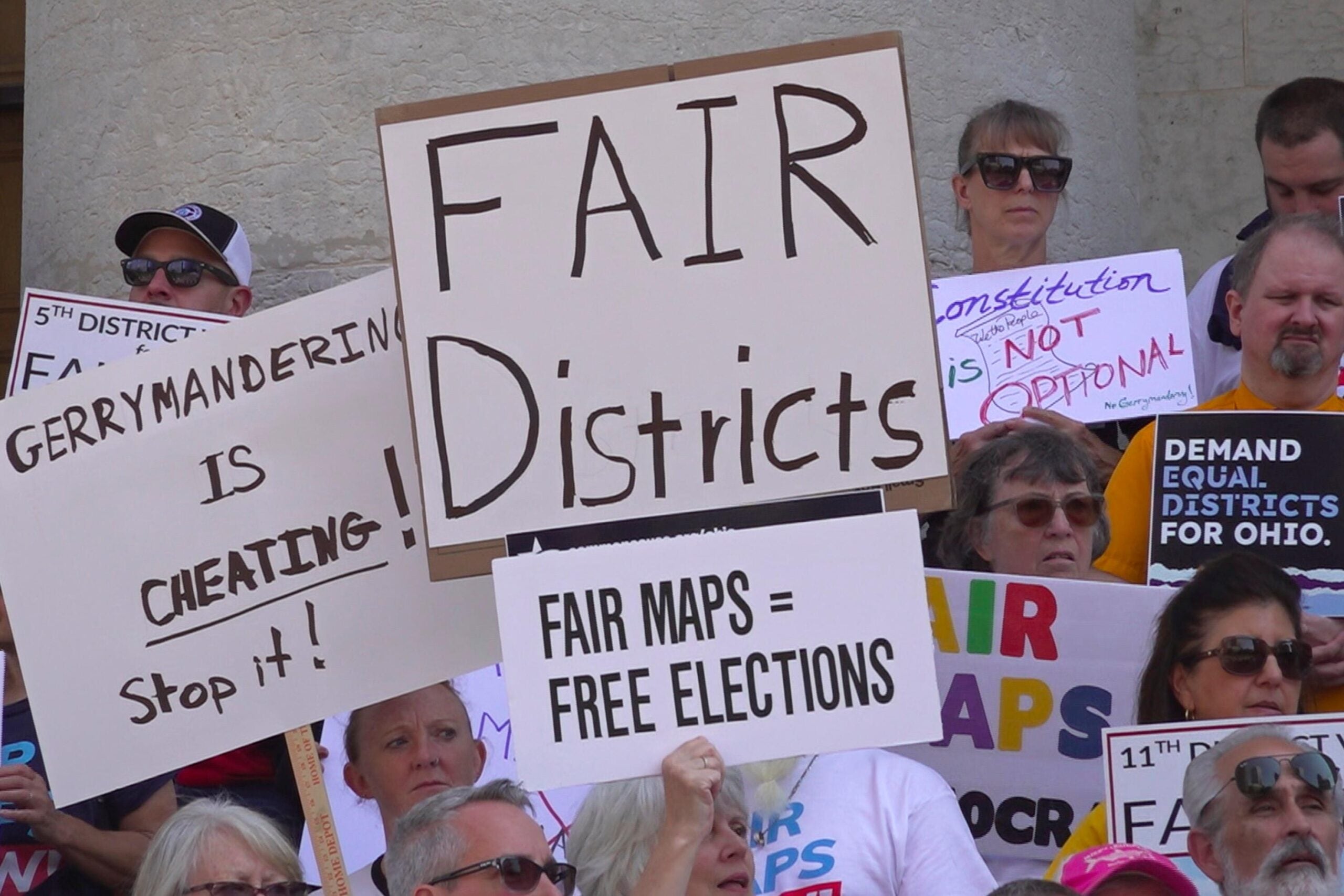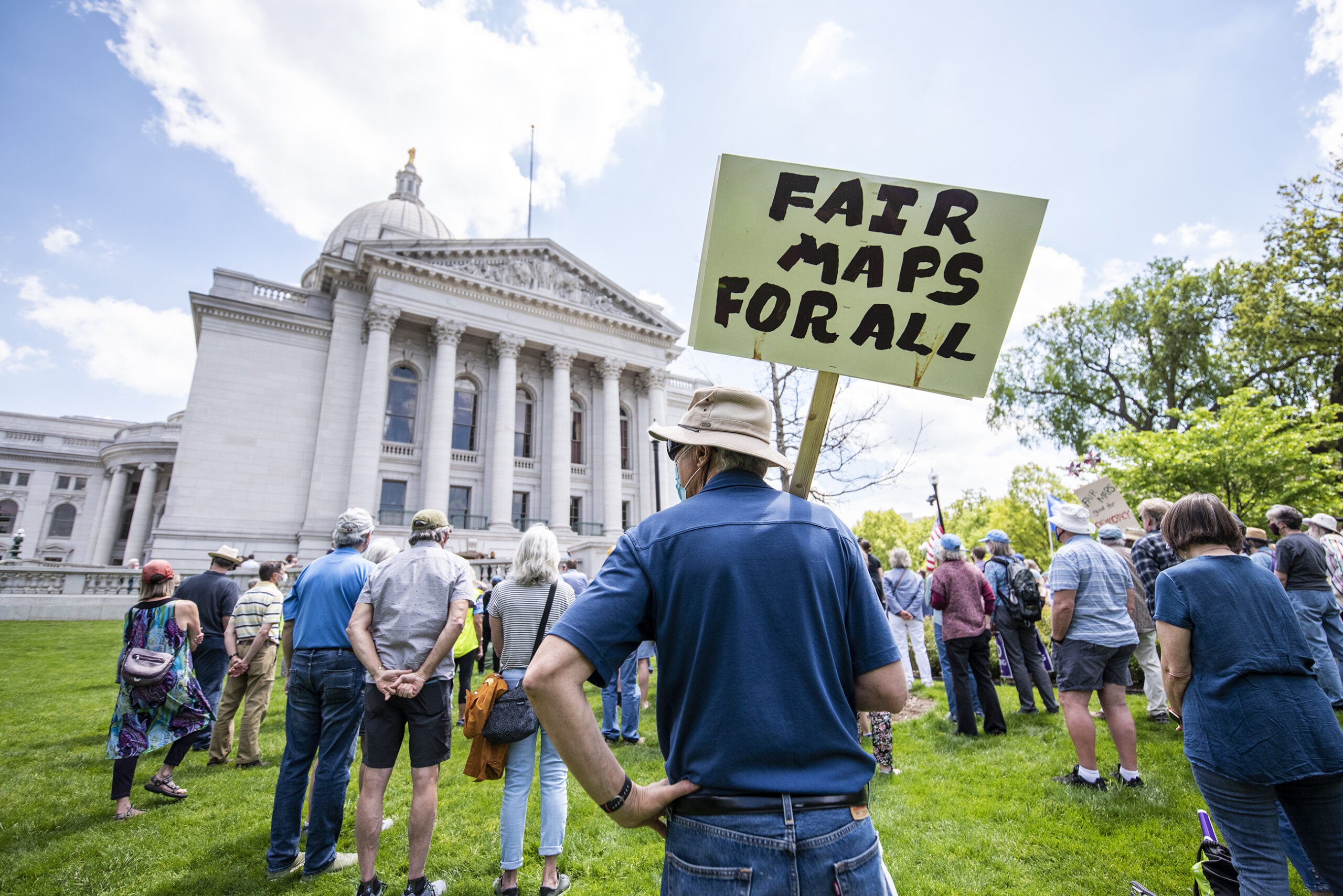The Wisconsin Supreme Court agreed Wednesday to take up a Republican-backed lawsuit over the state’s 2021 redistricting process.
The lawsuit, which was filed last month by the conservative Wisconsin Institute for Law and Liberty, asked the court to consider getting involved in the drawing of Wisconsin’s next set of political district maps if Gov. Tony Evers and the GOP-controlled state Legislature fail to agree on districts through the traditional mapmaking process. The state constitution requires maps to be redrawn every 10 years, based on new figures from the U.S. Census Bureau.
The lawsuit filing was considered a clear sign that Republicans would like the state’s highest court, which has a 4-3 conservative majority, to have jurisdiction over mapmaking in the state.
News with a little more humanity
WPR’s “Wisconsin Today” newsletter keeps you connected to the state you love without feeling overwhelmed. No paywall. No agenda. No corporate filter.
In a 4-3 order issued Thursday afternoon, the court agreed to take the case.
“We have a history of letting federal courts handle these matters, perhaps because it removes us from the thicket of political conflicts,” Justice Rebecca Bradley wrote in the court’s majority opinion. “Our job, however, is not to avoid controversy but to declare the law.”
A federal case over Wisconsin’s maps is also pending. Earlier this week, a judge set a January trial date in that case.
In the Supreme Court’s dissenting opinion, Justice Rebecca Dallet argued it is too soon for the state Supreme Court to get involved in the redistricting process.
“The majority’s order prematurely injects the court into the political process, risks undermining the court’s independence, and circumvents the statutory process for addressing redistricting challenges,” Dallet wrote.
Dallet also argued that, if courts do get involved in mapmaking, it is more appropriate for federal courts to do so.
In the order, the court said it needs more clarity on the timeline petitioners are asking for it to intervene in redistricting, if necessary. It asked all parties involved in the case to submit briefs by Oct. 6 proposing a timeline for possible court intervention if Evers and lawmakers fail to agree on maps.
Evers has called on lawmakers to consider maps that will be drawn by a redistricting commission he created, but GOP leaders haven’t said they will do so. Evers has the power to veto any maps he doesn’t like, which could send the maps to the courts. Maps have been drawn by courts several times in recent decades when Wisconsin has had divided government.
Wisconsin Public Radio, © Copyright 2025, Board of Regents of the University of Wisconsin System and Wisconsin Educational Communications Board.






